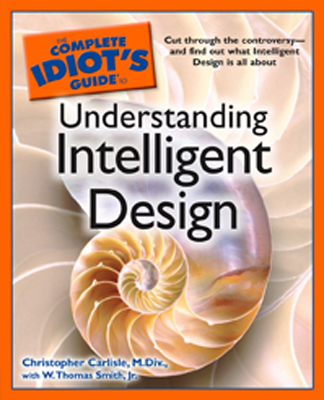I have no opinion on the foreign exchange student who lost massive amounts of weight while on his exchange program. However, I would like to relate my own exchange weight loss story as a data point:
I was an AFS student (from the US) to Austria in 1982-83. I lived with a family that owned a pastry (Konditorei) and bread (Baeckerei) bakery and two cafes (with the bakery and one cafe in the house), and I managed to lose 40-50 pounds in the 10 months I lived there (from a somewhat overweight 205 lbs to a very fit 160 lbs).
Torture? Starvation? No, I simply went from a typical sedentary, junk-food-filled American lifestyle to an active Austrian lifestyle. In the US, I drove everywhere, and I consumed an entire box of Fig Newtons when I got home from school in the afternoon (while watching Gilligan’s Isle).
In contrast, in Austria I walked and rode the bus everywhere, and had three meals a day plus maybe one piece of cake or other pastry. I can only imagine what it would have been like if the family had served vegan, not fat-filled meat-heavy Austrian, food.
Intellectual
Good but depressing podcast
I just listened to another interesting podcast from the Science in the City series: Callum Roberts‘ talk The Unnatural History of the Sea (I can’t link directly to it; go to the podcast listing and page in reverse chronological order until you find it. This podcast was released on October 26, 2007).
In this talk, Professor Roberts outlines human exploitation of the oceans thorughout history. It’s an interesting mix of biology and anthropology. However, it’s a depressing talk as well. Over and over in his talk, Professor Roberts picks a time and place and then outlines the stages of sea exploitation that took place.
Religion
Piss poor sermon
The video is several minutes long, but it’s worth it to listen to it all, trust me.
(via Gordon Atkinson, aka Real Live Preacher)
Religion
Even more idiocy
What other kind of guide is there for intelligent design?

Here’s the publisher’s description of the book (emphasis added):
Intelligent Design is one of the hottest issues facing parents and educators to day, but it can be hard to separate the facts from the heated rhetoric. This expert and objective guide gets to the bottom of the questions: What is Intelligent Design? Should it replace or complement traditional science? What’s all the fuss about?
- Explains the terms, the controversy, and the involvement of the American courts
- Indispensable guide for concerned educators and parents
- Written by an expert in the field
Intellectual
The Stuff of Thought
I recently found a new set of podcasts that I enjoy listening to in the car: Science and the City, recordings of lectures presented by the New York Academy of Sciences.
The past two days, I listened to a lecture by Harvard psychologist Steven Pinker titled The Stuff of Thought (there’s no direct link to individual podcasts. Go to the podcast page and page backwards in the reverse chronological archive to November 2, 2007). This lecture offers some interesting case studies in sociolinguistics. The concepts that are employed in the studies are nothing new to me, but the examples themselves are enjoyable.
Odds and Ends
The race to the bottom
I saw this book yesterday at the grocery store checkout counter:

Oh, and check out this Amazon.com review of the book.
Professional
Buzzword bingo
I received the following business contact (nice way to say spam from a legit company) to my small business email address this week:
Dear Stan:
It’s a pleasure getting connected with you. I am Pulakesh and am writing from Adea. Adea (www.adea.com) is a Texas based global IT Solutions & Services Company that leverages technology to create sustainable business value for clients and help them in their quest for improving business performance through a Global Engagement Model (GEM). Adea relies on its proprietary Global Engagement Modelâ„¢ (GEM) to deliver projects on time and within defined budgets. The GEM is a process driven framework that leverages the synergies of ProVedaâ„¢ – the Process Framework, OptiShoreâ„¢ – our Delivery Model and the ProSourceâ„¢ Business Model. All engagements at Adea, regardless of location or model, leverage GEM with more than 1,000 software professionals working in US, UK, India and China.
Man, I have no real idea what Adea does, and no real desire to find out.
Politics
Obama and hope
Yesterday, I explained why I’m supporting Barack Obama for president. Well, Patrick Nielsen Hayden endorses Obama for the same reasons, but he expresses his thinking more eloquently and in more detail:
I’m for Obama knowing perfectly well that, as Bill Clinton suggested, it’s a “roll of the diceâ€. A roll of the dice for Democrats, for progressives, for those of us who’ve fought so hard against the right-wing frames that Obama sometimes (sometimes craftily, sometimes naively) deploys. Because I think a Hillary Clinton candidacy will be another game of inches, yielding—at best—another four or eight years of knifework in the dark. Because I think an Obama candidacy might actually shake up the whole gameboard, energize good people, create room and space for real change.
Because he seems to know something extraordinarily important, something so frequently missing from progressive politics in this country, in this time: how to hearten people. Because when I watch him speak, I see fearful people becoming brave.
That’s not enough. But it’s something. It’s a real something. It’s a start.
(Via John Scalzi)
Politics
Fear, hope and love
This morning, I was reading a little blog post on fear, hope and love as the “three marketing levers”. Nothing astounding in the post, but it got me thinking about the 2008 presidential campaign. Katie has decided to back Hillary Clinton, and I’m going for Obama (not that it really matters, since the matter will be settled before our state’s primary).
Katie’s reasons for supporting Hillary are fear-based: she wants someone who is tough and experienced who is able to stand up to the shitheads in Washington. (She also backs Hillary because she is a woman. Not sure where that falls into these three oversimplified categories. Brand [gender] loyalty, maybe, which falls into the love category)
I’ve decided to back Obama out of hope. I desperately want to see some fresh air in Washington. I have no idea whether Obama can deliver, or whether he’ll just be trampled by the shitheads in Washington, but I’m hopeful.
(Note: each of us seems to be directly buying the primary marketing quality of the respective candidate)